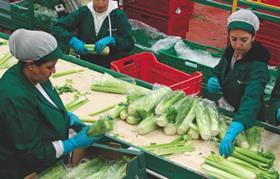
Spanish fresh produce association Asaja Murcia has estimated that more than 70 per cent of horticultural production in the region of Murcia, in the south-east of the country, has been aversely affected by the fall-out from the German E.coli outbreak.
Following the initial linking – since proven false – of Spanish cucumbers with the occurrence of the deadly bacteria in Germany’s Hamburg region, the association said the businesses of the majority of Murcia’s growers had now been “directly or indirectly” harmed by the events.
In fact, Asaja Murcia said that over 60 per cent of the region’s producers were judged to have been “very affected” by the so-called ‘cucumber crisis’, with many having been hit by serious decreases in their income.
In a statement, the association’s general secretary, Alfonso Gálvez Caravaca, said the crisis had most seriously affected growers in Murcia’s key production zones, Cartagena and the Guadalentín Valley, where he said many had lost their crops due to a collapse in demand.
The events, he said, were likely to have cut Murcian growers’ incomes by “more than 40 per cent”, adding that the compensation package agreed by the European Commission was “completely insufficient”.



